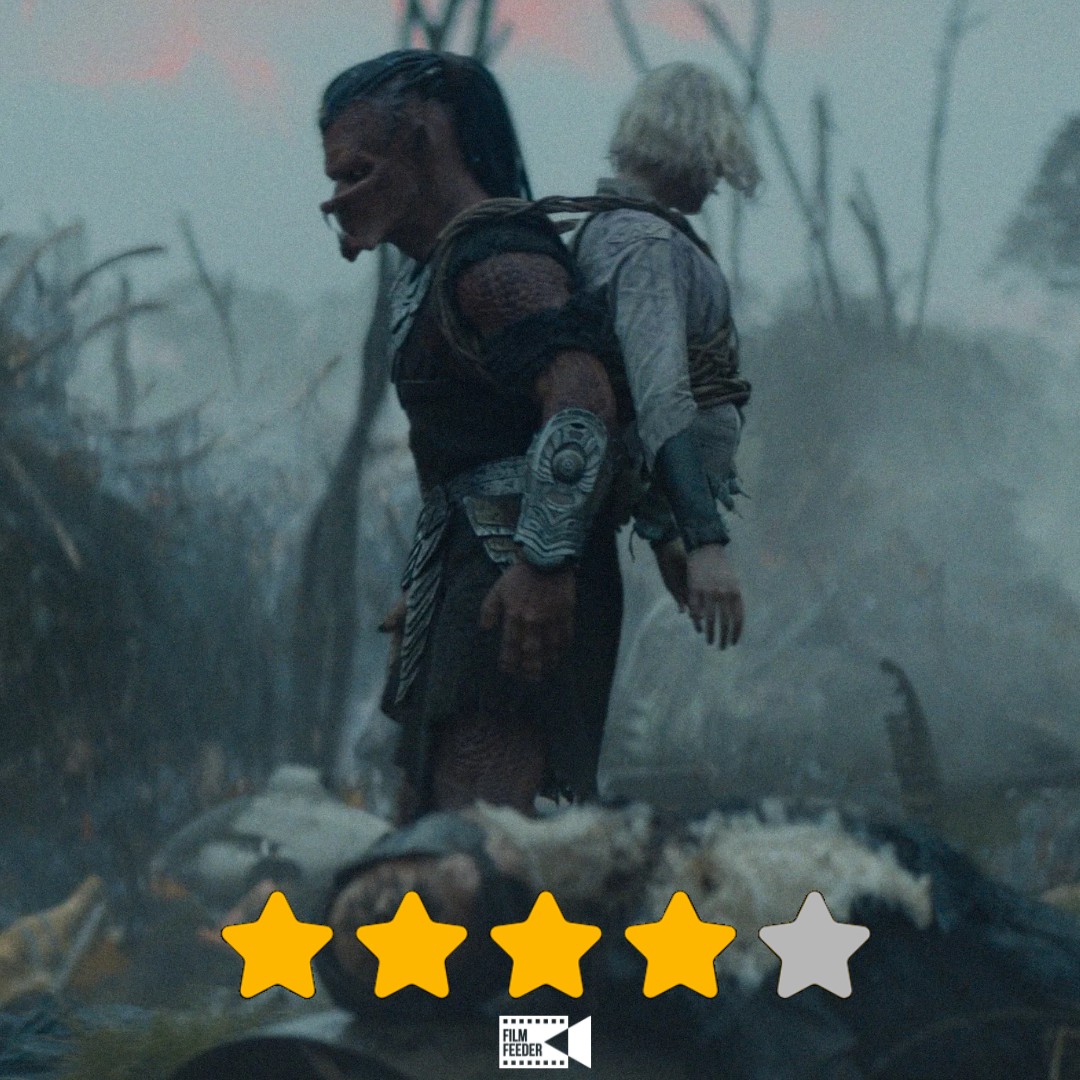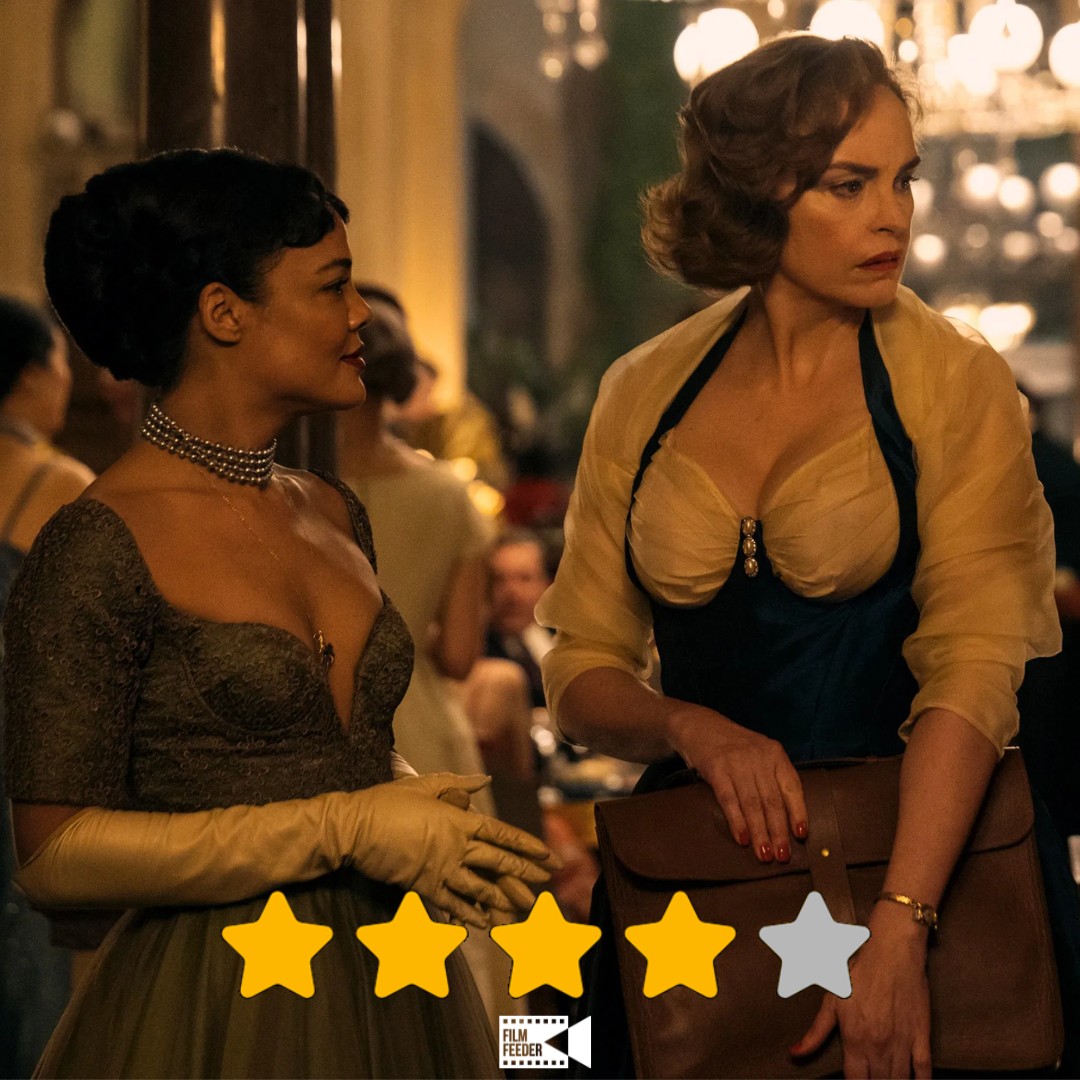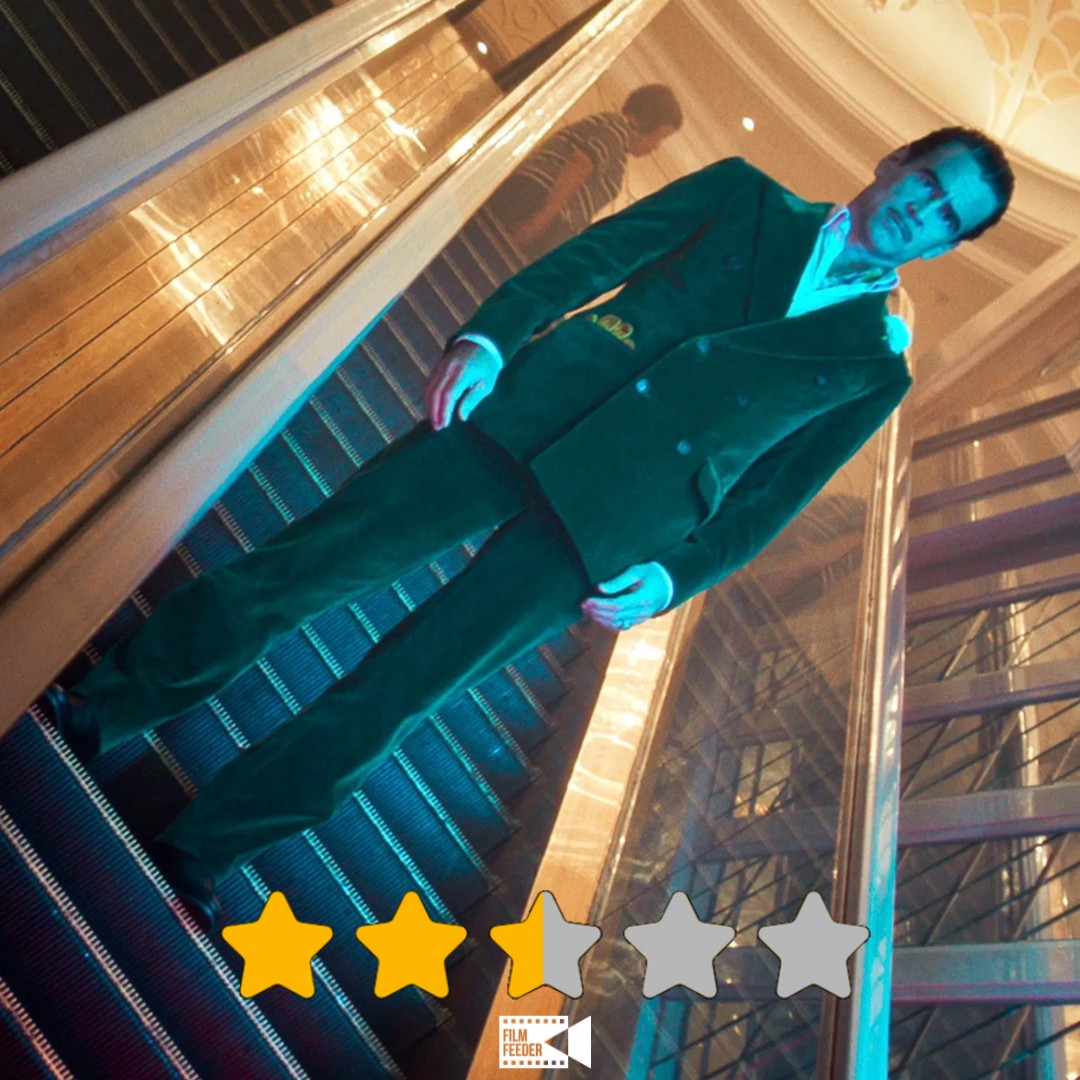
Nuremberg (dir. James Vanderbilt)
Certificate: 15
Running Time: 148 mins
UK Distributor: Sky Cinema
UK Release Date: 14 November 2025
WHO’S IN NUREMBERG?
Rami Malek, Russell Crowe, Leo Woodall, John Slattery, Mark O’Brien, Colin Hanks, Wrenn Schmidt, Lydia Peckham, Michael Shannon, Richard E. Grant, Lotte Verbeek, Andreas Pietschmann, Steven Pacey, Paul Antony-Barber, Jeremy Wheeler, Wolfgang Cerny, Dan Cade, Donald Sage Mackay, Dieter Riesle, Wayne Brett, Mesterházy Gyula, Sam Newman, Philippe Jaq, Tom Keune, Blake Kubena, Michael Sheldon, Fleur Bremmer
WHO’S BEHIND THE CAMERA?
James Vanderbilt (director, writer, producer), Bradley J. Fischer, George Freeman, Cherilyn Hawrysh, István Major, Richard Saperstein, William Sherak, Frank Smith and Benjamin Tappan (producers), Brian Tyler (composer), Dariusz Wolski (cinematographer), Tom Eagles (editor)
WHAT’S IT ABOUT?
In post-war Europe, a psychiatrist (Malek) assesses former top Nazi Hermann Göring (Crowe)…
WHAT ARE MY THOUGHTS ON NUREMBERG?
The great irony of the Nazi Party is that, for a regime that relied so heavily on spreading its hateful propaganda through the eerily compelling power of cinema, it was ultimately brought down for good by a similar kind of effective filmmaking. During the Nuremberg trials, where the remaining Nazi high command following Germany’s surrender were formally prosecuted to the extent of international law, never-before-seen documentary footage was shown as evidence of German war crimes, specifically the barbaric execution of countless Jews and other prisoners in numerous concentration camps. The hour-long film was the first time that most of the world had seen proof of the Holocaust before their very eyes, and needless to say its shocking and deeply upsetting visuals were instrumental in the formal conviction of each Nazi standing trial, arguably making it one of the most important pieces of filmmaking in human history.
The courtroom screening is one of many scenes that are quite powerfully replicated in writer-director James Vanderbilt’s Nuremberg, a film that may not have nearly as much lasting emotional power as the one shown during the trials, but when it allows itself to be, it’s an engaging and often gripping depiction of evil and the unrepentant egos that enabled, and in some cases continue to enable, the very atrocities that were put on trial.
The film begins shortly after the end of the war in 1945, with several surviving top-ranking Nazi officials being formally arrested and imprisoned, most notably Hitler’s second-in-command Hermann Göring (Russell Crowe), the de facto face of the Nazi Party following Hitler’s suicide. A public tribunal is put into motion by US Supreme Court Justice Robert Jackson (Michael Shannon), with military psychiatrist Douglas Kelley (Rami Malek) being brought in to assess the prisoners and determine if they are psychologically fit to stand trial. Kelley, however, is blinded by his own ambitions of writing a book based on his findings from assessing the likes of Göring, with whom he develops an uneasy camaraderie as both men, driven by their separate desire for notoriety, continually test one another in the lead-up to the historic court case.
Vanderbilt, taking inspiration from Jack El-Hai’s non-fiction book The Nazi and the Psychiatrist, frames Kelley and Göring’s mental tug-of-war as the film’s biggest battle, with the trials themselves and their well-known outcome (spoiler: it doesn’t end well for the Nazis) a mere backdrop to their psychological warfare. Their scenes together are some of the film’s most fascinating for not only do you have great actors like Malek and Crowe giving expansive life to these vastly complex roles, the latter in particular giving his strongest performance in years as the narcissistic Göring, but Vanderbilt’s writing consistently grips you with its compelling dialogue and character dynamics as these two men constantly try and out-manipulate one another, both coming off as scarily persuasive at times. Their somewhat perverse relationship even crosses some personal boundaries, like Malek’s Kelley interacting with and forming a familial bond with Göring’s wife and daughter as he delivers his patient’s messages to them, and the filmmaker adds a subtle creepiness to the idea that this overly ambitious psychiatrist and this literal Nazi may find common enough ground with one another to a point where they become as familial as the latter’s actual family.
The film is a bit more standard, though not necessarily less interesting, when it focuses more on the build-up to the Nuremberg trials themselves. Vanderbilt applies a lot of stuffy exposition to scenes of Shannon’s Jackson going around persuading politicians and even the Pope to go ahead with his radical tribunal, and although the filmmaker does his best to have most of it zip along to a fairly active pace, it tends to drag whenever it bogs itself down in overly detailed (but still well-written) dialogue. Other moments focusing on characters like Leo Woodall’s Howie Triest, the young sergeant who assists Kelley on his endeavours, are strongly acted yet carry a sense of old-school Hollywood schmaltz that yearns for emotional credibility in a film about a historical event that is already quite emotionally taxing, which can make the two-and-a-half-hour movie feel its length.
Films like Oppenheimer, which Vanderbilt seems especially eager to replicate in terms of its active pacing, heavily descriptive writing and even the use of shared cast member Rami Malek, managed to earn its unlikely combination of epic filmmaking and stuffy exposition through engrossing technical aspects like its cinematography and editing. Nuremberg is a bit more reserved in those departments, possibly due to a much lesser budget than Christopher Nolan’s movie but also because Vanderbilt, as skilled a writer as he clearly is, doesn’t quite have it in him as a director to compose his various creative branches towards something that looks and feels comparatively much blander than the films that he wants his to be more like.
But luckily, there’s enough about the film itself that holds your attention as decent thrillers like this tend to do, and while it’s somewhat weighed down by its straightforward approach, Nuremberg shares common ground with the Holocaust footage shown during the trials in that it shows clear as day what evil things people are capable of.
SO, TO SUM UP…
Nuremberg is an engaging historical thriller that works best when focusing on the psychological battle between its two evenly matched protagonists, as compellingly played by Rami Malek and a particularly impressive Russell Crowe, whereas its more straightforward depiction of the leadup towards the titular trials is bogged down in stuffy exposition and old-school Hollywood schmaltz that, while interesting enough, can’t elevate it higher than it should.














0 Comments